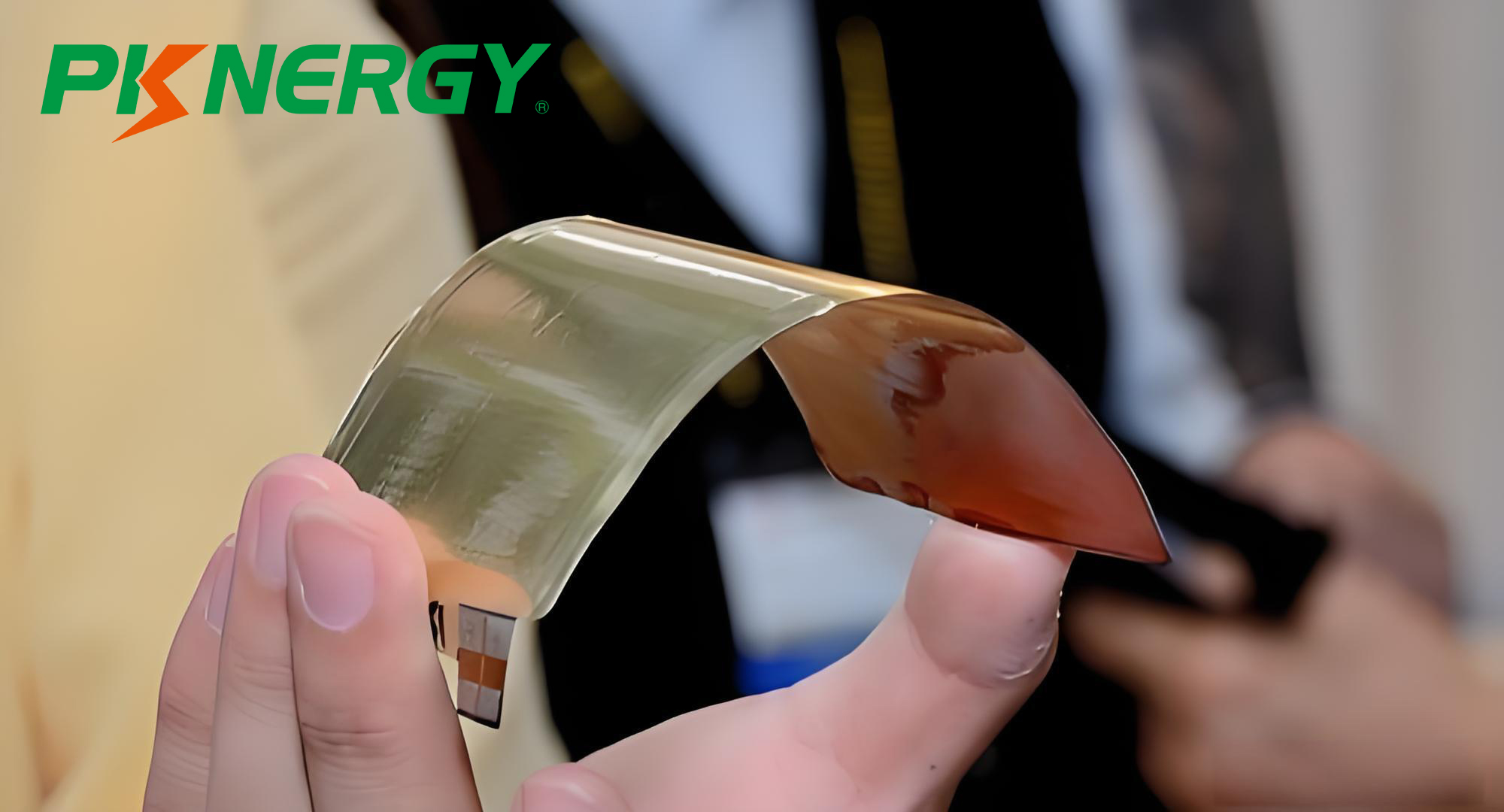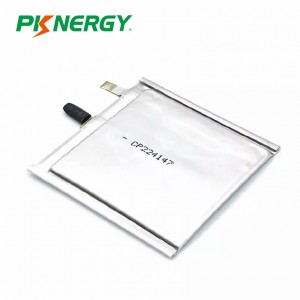The common lithium-ion batteries we see are often cylindrical or prismatic. But have you ever wondered what kind of batteries power bank cards or Bluetooth earbuds? This article will introduce you to cutting-edge technology in the battery world—the thin film li-ion battery. By understanding its specifications, advantages, and drawbacks, you can determine if this battery suits your product needs.
What is a Thin Film Li-Ion Battery?
A thin film li-ion battery is a type of lithium battery with an extremely thin profile, sometimes as thin as 0.5mm. These batteries are generally lithium polymer battery and are widely used in compact electronic devices such as bank cards, Bluetooth earbuds, and smart cards, due to their ultra-thin characteristics.
What are the Common Voltages of Thin Film Li-Ion Batteries?
The typical voltage range of thin film li-ion batteries is between 3.7V and 4.2V, depending on the chemical composition and design. This range is suitable for many low-power electronic devices.
What is the Capacity of Thin Film Li-Ion Batteries?
The capacity of thin film li-ion batteries is usually limited, ranging from a few milliamp-hours (mAh) to several dozen mAh, depending on the thickness and surface area. While the capacity is modest, the ultra-thin design makes them highly advantageous for small devices.
Advantages and Drawbacks of Thin Film Li-Ion Batteries
Advantages:
- Ultra-Thin Design: Perfect for use in ultra-slim electronic devices.
- Lightweight: Extremely light, suitable for weight-sensitive applications.
- Flexible: Can be designed in various shapes and sizes to meet different requirements.
Drawbacks:
- Limited Capacity: The capacity is relatively small due to the ultra-thin design.
- Higher Production Cost: Manufacturing is more complex, making the cost higher.
Application Scenarios for Thin Film Li-Ion Batteries
Thin film li-ion batteries are widely used in devices requiring compact, lightweight, and thin designs, such as:
- Bank Cards: Providing power for smart cards.
- Bluetooth Earbuds: Powering small audio devices.
- Medical Devices: Such as implanted sensors and monitoring equipment.
- Wearable Devices: Like smartwatches and fitness trackers.
What is the Lifespan of a Thin Film Rechargeable Battery?
Thin film rechargeable batteries typically have a lifespan of 300 to 500 charge cycles, depending on the battery chemistry and usage environment. Proper usage and maintenance can extend battery life.
Are Thin Film Li-Ion Batteries Rechargeable?
Yes, thin film li-ion batteries are rechargeable. They usually use a lithium polymer chemical system, which supports charge and discharge functions, making them suitable for devices requiring repeated charging. However, due to their smaller capacity, the charging time is often short, making them ideal for low-power applications.
Who Produces Thin Film Li-Ion Batteries?
If you are looking for thin film lithium batteries, PKNERGY can help. PKNERGY is a Shenzhen-based lithium battery manufacturer specializing in custom-shaped batteries, such as curved or triangular lithium batteries (with thin-film li-ion batteries being one of the types). Over the past 18 years, we have supplied high-quality custom batteries to companies worldwide. PKNERGY’s thin film li-ion batteries range from 8mm thickness to as thin as 0.5mm, featuring eco-friendly design, low self-discharge, and long cycle life.
PKNERGY Thin Film Li-Ion Battery Specifications
| Full-Charged Voltage | C rate | Capacity | Thickness | Width | Length |
|---|---|---|---|---|---|
| 4.35V | 1C | 140mAh | 0.85mm | 49mm | 49mm |
| 4.2V | 1C | 135mAh | 0.85mm | 49mm | 49mm |
| 4.35V | 1C | 48mAh | 0.5mm | 49mm | 49mm |
| 4.2V | 1C | 22mAh | 0.5mm | 22.5mm | 55.5mm |
| 4.2V | 1C | 7.5mAh | 0.55mm | 15mm | 34.3mm |
| 4.35V | 1C | 42mAh | 0.5mm | 49mm | 49mm |
Conclusion
The thin film li-ion battery is an innovative power solution for compact devices. Its ultra-thin and lightweight design makes it ideal for applications in bank cards, Bluetooth earbuds, medical devices, and more. While it has limitations in capacity and higher production costs, its flexibility and rechargeable nature provide reliable power for various small devices. If your product requires an ultra-thin battery, a thin film li-ion battery could be the perfect choice.
Post time: Oct-23-2024


